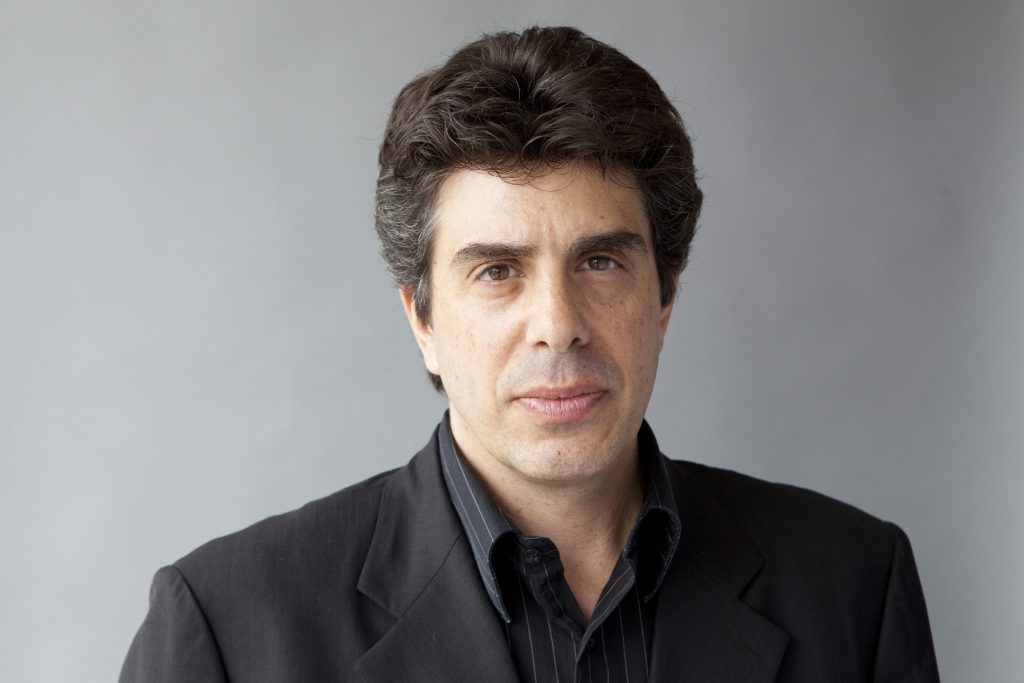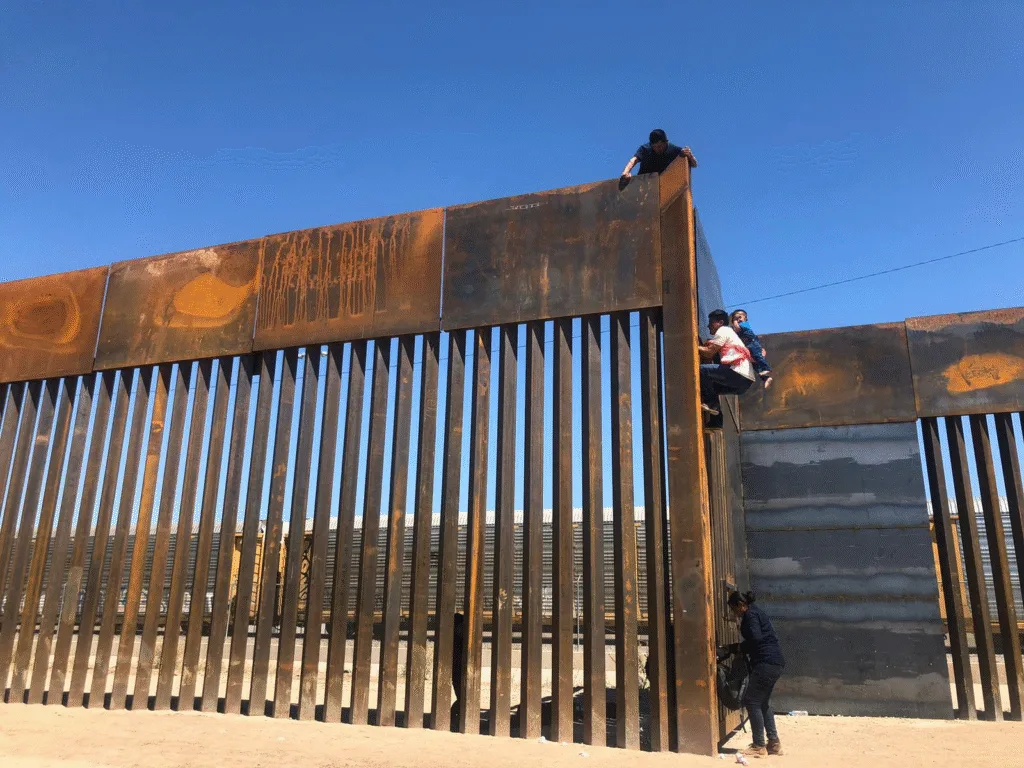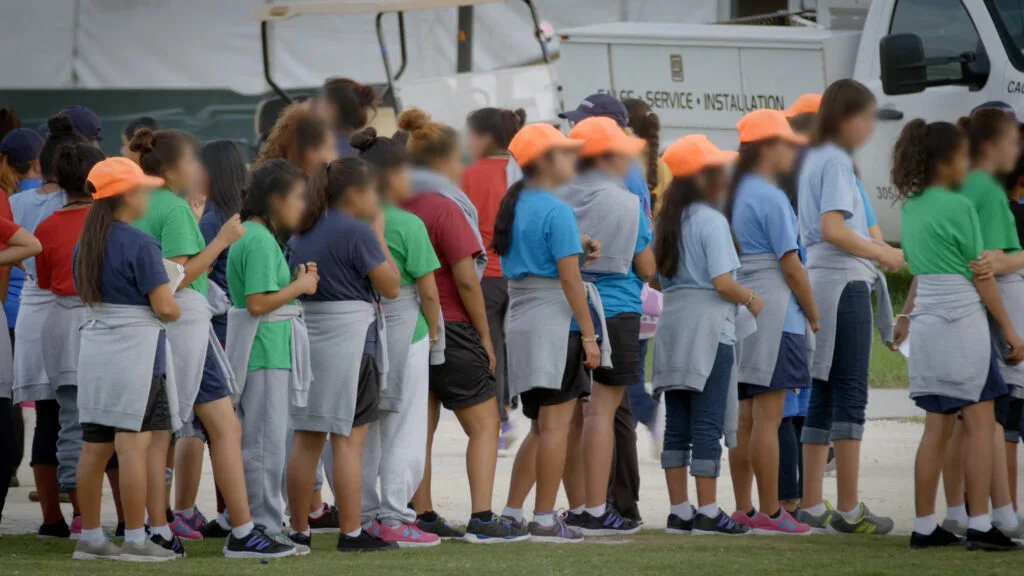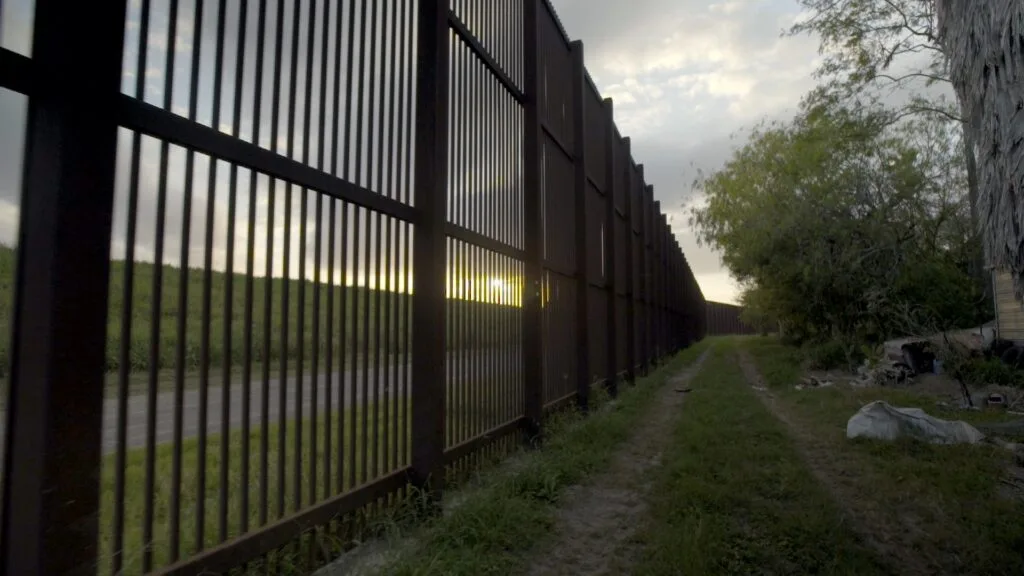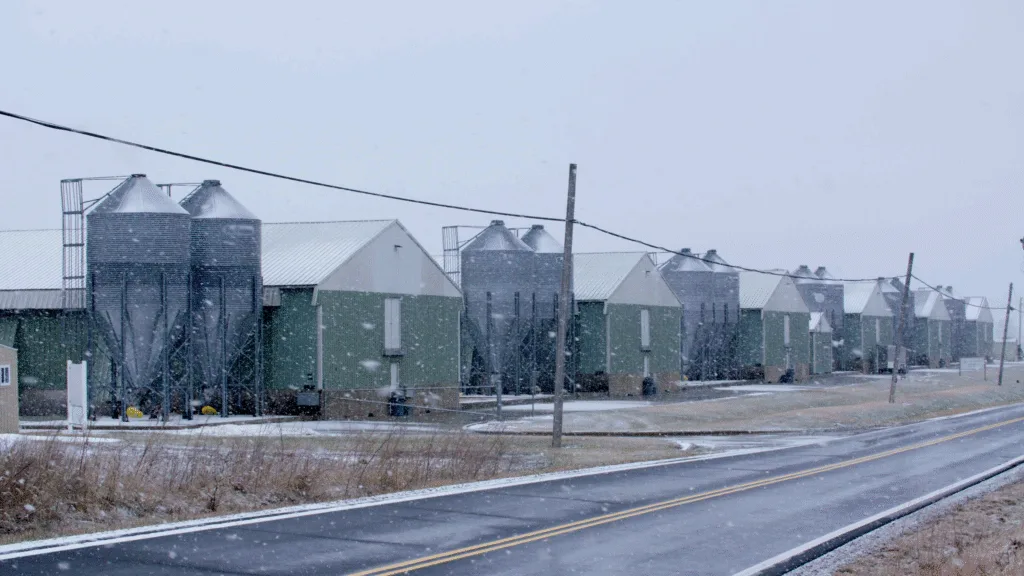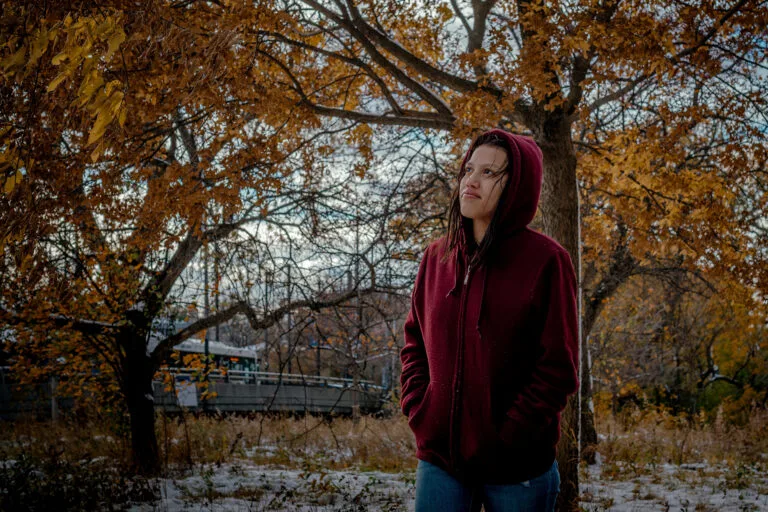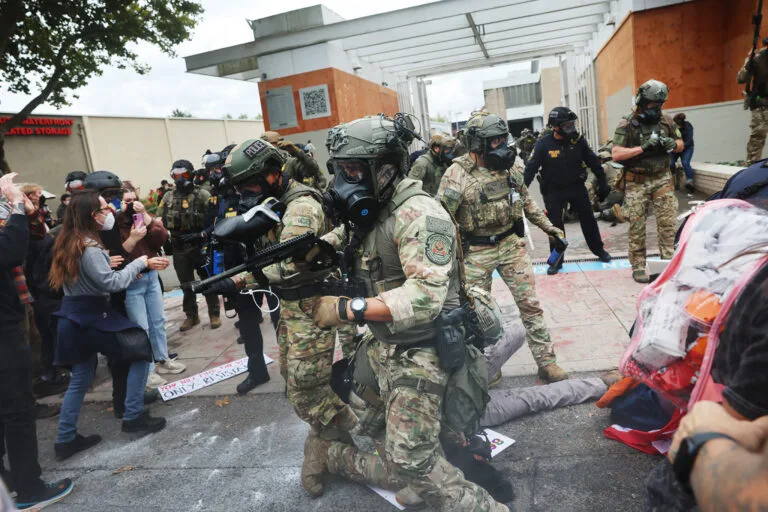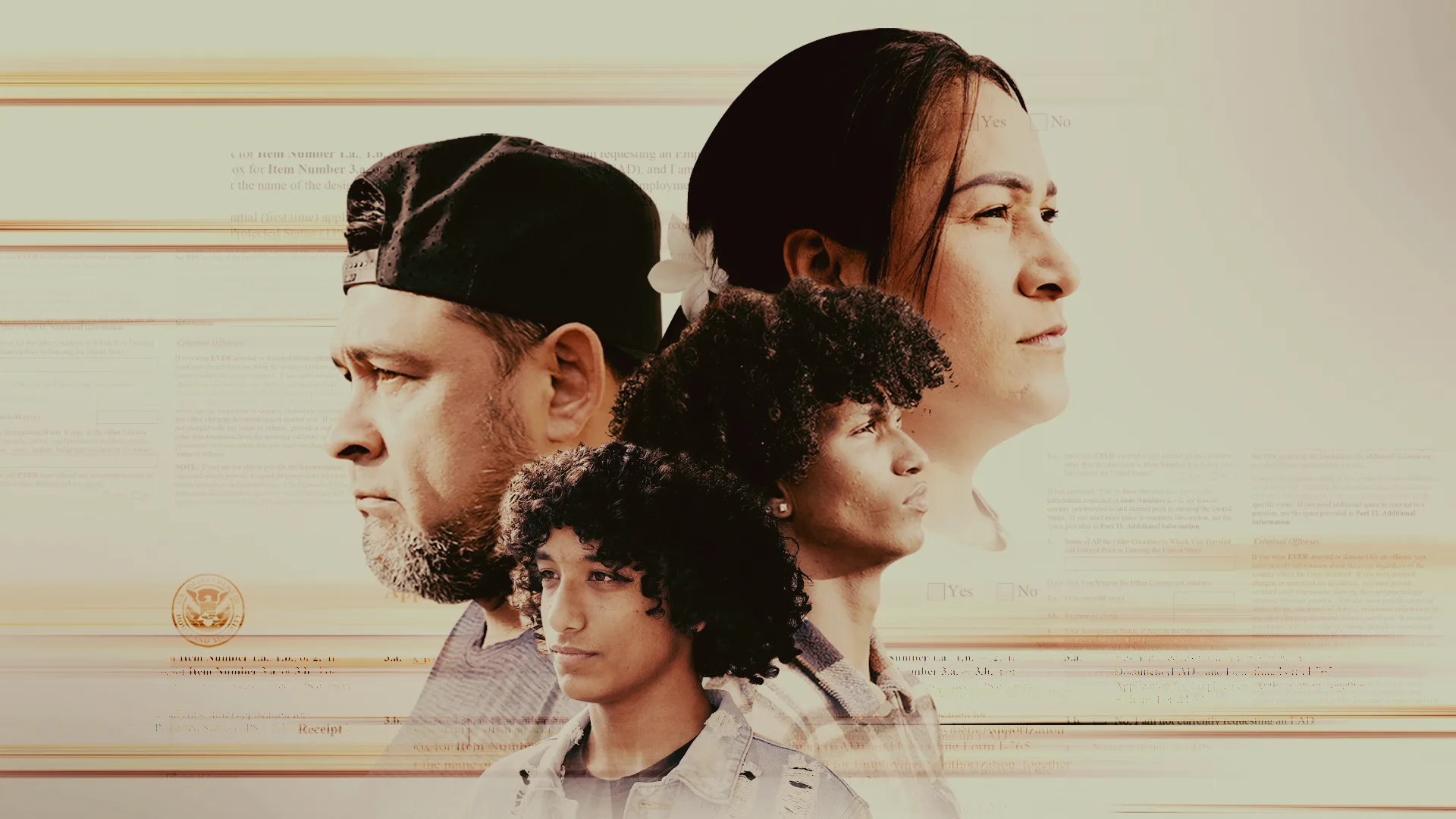‘I Lost Everything’: Venezuelans Were Rounded Up in a Dramatic Midnight Raid but Never Charged With a Crime
Authorities said Tren de Aragua “terrorists” had taken over the building. A ProPublica investigation found little evidence to back up the government’s claims. For the first time, the Venezuelans arrested in a Chicago raid are telling their stories.
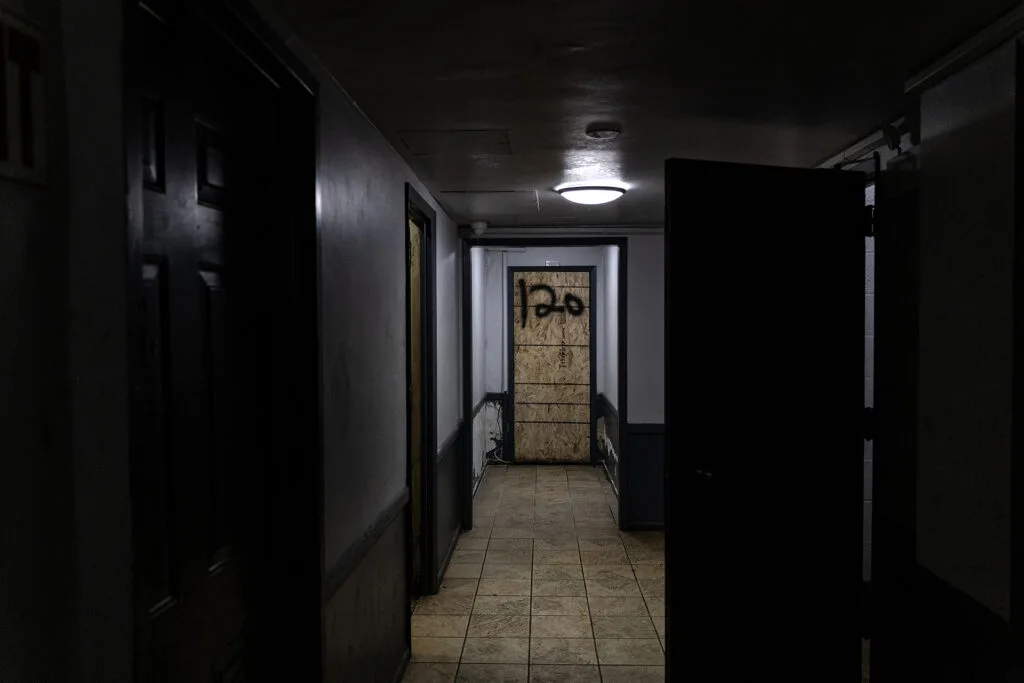
November 13, 2025
Share
This story is part of a collaboration between FRONTLINE and ProPublica that includes an upcoming documentary.
On the night of the raid, heavily armed federal agents zip-tied Jhonny Manuel Caicedo Fereira’s hands behind his back, marched him out of his Chicago apartment building and put him against a wall to question him.
As a Black Hawk helicopter roared overhead, the slender, 28-year-old immigrant from Venezuela answered softly, his eyes darting to a television crew invited to film the raid. Next to Caicedo, masked Border Patrol agents inspected another man’s tattoos and asked him if he belonged to Tren de Aragua, the Venezuelan gang that the Trump administration has designated a terrorist group.
Until that moment, Caicedo’s only interaction with law enforcement in his two-and-a-half years in the United States had been a traffic stop two weeks earlier for driving without a license or insurance, according to the records we reviewed. Chicago police had run a background check on him and found no prior arrests, no warrants and no evidence that he was in a gang. Caicedo said he had a pending asylum application, a steady job at a taco joint and a girlfriend whose daughter attended elementary school across the street.
None of that mattered. The U.S. government paraded him and his neighbors in front of the cameras and called their arrests a spectacular victory against terrorism. But later, after the cameras had gone, prosecutors didn’t charge Caicedo with a crime. They didn’t accuse him of being a terrorist. And after a brief hearing in immigration court, the government sent him back to the country he had fled nine years earlier.
“I lost everything,” he said in a phone interview from his mother’s home in the Venezuelan city of Valencia. “For those fools, everyone from Venezuela is a criminal.”
Caicedo’s quiet deportation contrasted with the drama of his capture during one of the most aggressive and highly publicized immigration raids carried out in a U.S. city in recent history. Shortly after midnight on Sept. 30, some 300 agents from Border Patrol, the FBI and other agencies stormed the 130-unit apartment complex. SWAT teams rappelled from a helicopter, knocked down doors and hurled flash-bang grenades. They arrested 37 immigrants, most of them Venezuelans, who authorities say were in the country illegally. Agents also zip-tied and, for several hours, detained many U.S. citizens.
Soon afterward, President Donald Trump’s administration released a slickly produced video of the operation. Officials said they had captured two “confirmed” members of Tren de Aragua, including one on a terrorist watch list. Stephen Miller, the White House homeland security adviser and architect of the nationwide immigration crackdown, declared that the building was “filled with TdA terrorists,” that the raid had “saved God knows how many lives” and that it was “one of the most successful law enforcement operations that we’ve seen in this country.”
A ProPublica investigation, however, has found little evidence to support the government’s claims. ProPublica has discovered the names of 21 of the detained Venezuelan men and women and interviewed 12 of them. We also spoke with dozens of their relatives, friends and neighbors. And we reviewed U.S. public records databases and court websites, examined court documents and social media accounts, obtained audio and video recordings made that night, and attended immigration court hearings.
Federal prosecutors have not filed criminal charges against anyone who was arrested. Nor have they revealed any evidence showing that two immigrants arrested in the building belonged to the Tren de Aragua gang, or even provided their names. ProPublica was nonetheless able to identify one of them, Ludwing Jeanpier Parra Pérez from a press release that did not connect him to the raid. Parra denied that he is a member.
“I don’t have anything to do with that,” Parra, 24, said during an interview from an Indiana jail where at least 17 of the men were taken after the raid. “I’m very worried. I don’t know why they are saying that. I came here to find a better future for me and my family.”
Our review of criminal records indicates that Chicago police arrested Parra for drug possession and driving without a license after a traffic stop last year, but the charges were dropped. We found no other arrest records.
As the detained men have gone to immigration court, many have asked to be sent back to Venezuela. ProPublica has observed eight of their hearings, and not once has a government attorney mentioned any pending criminal charges or membership in Tren de Aragua. Instead, judges have simply ordered them deported, like Caicedo, or have granted them voluntary departure — a sign that they are not seen as a serious threat and can apply for return to the United States.
That “raises a legitimate question as to whether any of the people in that building were really considered susceptible to prosecution,” said Mark Rotert, a former federal prosecutor and defense attorney in Chicago. “Do they really believe they have people who are members of a violent organized crime gang? If they believe they have people who fit that criteria, I would be very surprised if they were satisfied with only deporting them.”
Although officials said they had intelligence about guns, drugs and explosives in the building, they have not revealed evidence that they seized anything illicit. The legal justification for agents forcing their way into apartments throughout the building is unclear. In interviews, former SWAT team members and other law enforcement experts questioned the decision to have agents descend on ropes from a helicopter — a tactic that’s rare in urban settings because of the risk to agents and the public. And veteran gang investigators said the post-operation hype reflects a political obsession with Tren de Aragua by the Trump administration that is distorting the threat the gang poses.
“There’s so much pressure put on agents to be documenting TdA that they just see Venezuelan crooks and say, ‘He’s TdA,’” said a Texas law enforcement official who is an expert on Latino gangs and who requested anonymity because he is not authorized to comment.
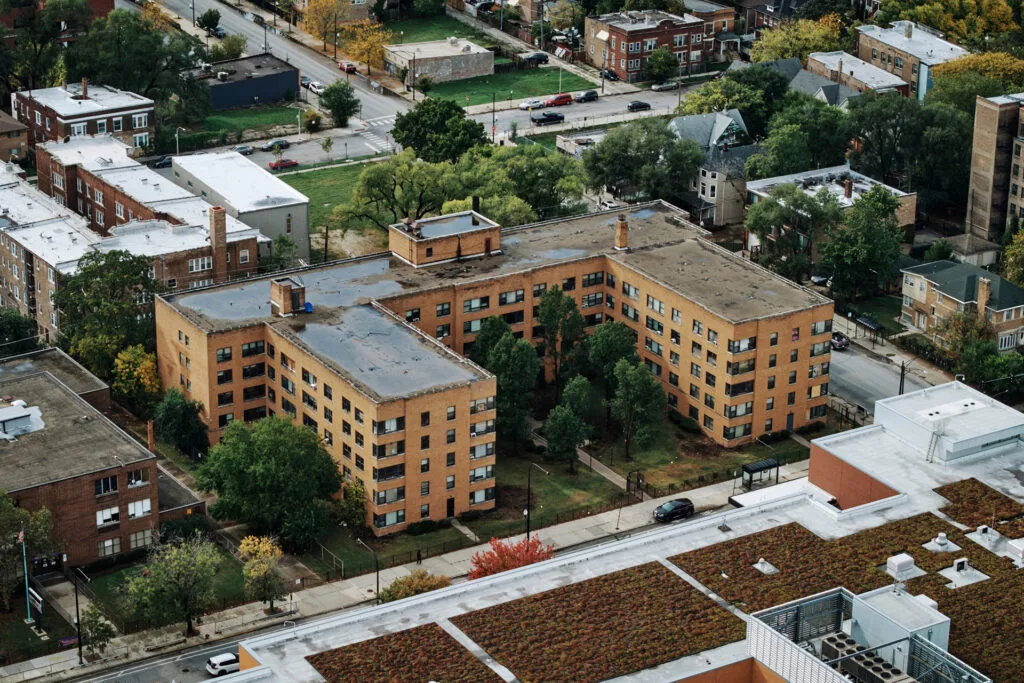
During the raid, panicked tenants hid under beds, climbed into elevator shafts and jumped out of windows, residents said. Some managed to avoid capture. Six Venezuelan men said agents hit or kicked them. A law enforcement dog bit a Nigerian tenant, leaving blood on the floor of an apartment, according to interviews and a phone video of the aftermath. Charging into an apartment nearby, agents forced Jean Carlos Antonio Colmenares Pérez to his knees. His 6-year-old nephew clung to him, sobbing.
“They brought us out like criminals,” said Colmenares, 39, a construction worker and former Venezuelan army paratrooper. Apart from a traffic ticket, the father of four has no criminal record that we could find.
In a radio interview, Todd Lyons, the acting director of Immigration and Customs Enforcement, said the show of force was necessary because of the threat from Tren de Aragua gang members who were “terrorizing the poor residents.” He added: “When law enforcement has any intelligence like that, when we’re facing known gang members that are now designated a foreign terrorist organization, of course we’re going to go in with our SWAT teams and our special operations teams.”
But ProPublica’s reporting debunks the idea of a “Tren de Aragua complex” taken over by a horde of terrorists. We found no criminal convictions for 18 of the 21 Venezuelans we identified. Three of the men had been charged with offenses ranging from drug possession to battery, but in each case the charges were dropped. Another man had convictions for domestic battery and shoplifting, and a pending charge for illegal gun possession. In addition, one man had convictions for shoplifting and battery against an officer, along with pending theft charges. A third had a marijuana possession conviction.
Our findings on criminal records are not comprehensive since there’s no universal database of charges or convictions. We have no information regarding the other 16 individuals detained in the raid because officials have declined to release any names or say whether children were included in that count. ProPublica could not ascertain if any of them may have records in other countries.
The Department of Homeland Security did not respond to a detailed list of questions regarding the raid. It provided a statement that said the operation was “performed in full compliance of the law.”
“Given that two individuals of a Foreign Terrorist Organization were arrested, at a building they are known to frequent, we are limited on further information we can provide,” Tricia McLaughlin, spokesperson for the DHS, said in the statement. “The safety and protection of sources is more important than your story.”
There is no doubt that the five-story building a block from Lake Michigan was dilapidated and dangerous. Young men openly carried guns in hallways and stairwells, several former residents said. Some tenants barricaded themselves in their homes at night to ward off burglars and drug addicts. A Venezuelan resident was arrested for the murder of a countryman in an apartment over the summer. Squatters — both U.S. citizens and Venezuelans — occupied some units.
But law-abiding families lived there, too. Colmenares had moved in at the start of the year with his cousin’s family. In another unit lived one of his brothers with his adult son, who has autism.
While working long days in construction and nights as an Uber driver, Colmenares tried to navigate around the menace and squalor.
“I don’t know whether these people were or weren’t thieves,” he said. “Because to tell you the truth, I just passed right by them. ‘Good morning, good morning,’ and that’s it. I was focused on going to work.”
The Newcomers
Colmenares, Caicedo and Parra were among the more than 50,000 new immigrants who began arriving in Chicago in 2022.
Many settled in South Shore, a predominantly African American neighborhood that has struggled with crime and neglect by the city’s often dysfunctional and corrupt political leadership. It is a landscape full of contrasts. Well-maintained blocks of bungalows and elegant houses coexist with abandoned storefronts and vacant lots. The area has been the home of Michelle Obama, Jesse Jackson and Kanye West. But it has also absorbed low-income families displaced by the demolition of Chicago’s vast and violent housing projects starting in the 1990s. Many of them ended up in grim apartment blocks like the one at 7500 S. South Shore Drive.
So did the Venezuelans. The rent was cheap. Those who moved in found jobs washing dishes and driving for Uber, laying shingles and hanging drywall. By the time of the raid, about 40 Venezuelan families, many with small children, lived there, several former tenants said.
About a dozen African American residents said they maintained friendly but distant relations with their new neighbors. One man fondly recalled an excursion to nearby Rainbow Beach with a Venezuelan family. Another complained that the influx of Venezuelan immigrants strained resources, including at the local food pantry.
“By the time we get there, it’s only three pieces of bread left,” he said.
None of the residents interviewed by ProPublica said they knew of Tren de Aragua members in the building. But several acknowledged the presence of Venezuelans involved in criminal activity, who one resident described as “malandros,” slang for hoodlums.
Former residents described seeing men openly carry handguns inside the building at parties where Venezuelans danced to loud electronic music. Others said there was drug dealing — by U.S. citizens as well as immigrants — and prostitution. Longtime residents said the Venezuelans involved in illegal activity preyed mainly on their countrymen.
“There were all kinds of people in there,” one Venezuelan man said. “There were humble families and working people. But there were also bad people.”
In the year leading up to the raid, the city block where the apartment building sits had 61 reported crimes, which is similar to other nearby blocks, according to a ProPublica analysis. In contrast, most city blocks experienced five or fewer reported crimes.
In June, two Venezuelan men allegedly gunned down a fellow Venezuelan tenant in a third-floor apartment, the apparent victim of a feud among groups of immigrants. But court records, Chicago police reports and a DHS press release do not mention a link to gang activity, let alone to Tren de Aragua. One man has been charged and is pleading not guilty in the case, according to the Cook County public defender’s office.
Nonetheless, federal officials have said that they had gathered intelligence that Tren de Aragua members had taken over abandoned apartments and had weapons and even explosives. None of the residents interviewed by ProPublica said they were aware of explosives. Several law enforcement officials told ProPublica it would be rare to find Tren de Aragua members in the U.S. with explosives.
The building was in bad shape. Trash piled up. Water flooded the halls. Stairwells smelled of urine. Plaster fell from the walls. Bugs and rodents infested the building. The security guards disappeared. In the past two years, the building failed 18 of 21 inspections.
As summer turned to fall, the Venezuelan tenants realized they had something else to worry about: Operation Midway Blitz, the immigration enforcement campaign that has led to more than 3,000 arrests throughout the city and suburbs. Immigration agents detained Colmenares’ brother and his nephew in late September as they returned home after looking for scrap metal to sell.
“They were grabbing people everywhere,” Colmenares said.
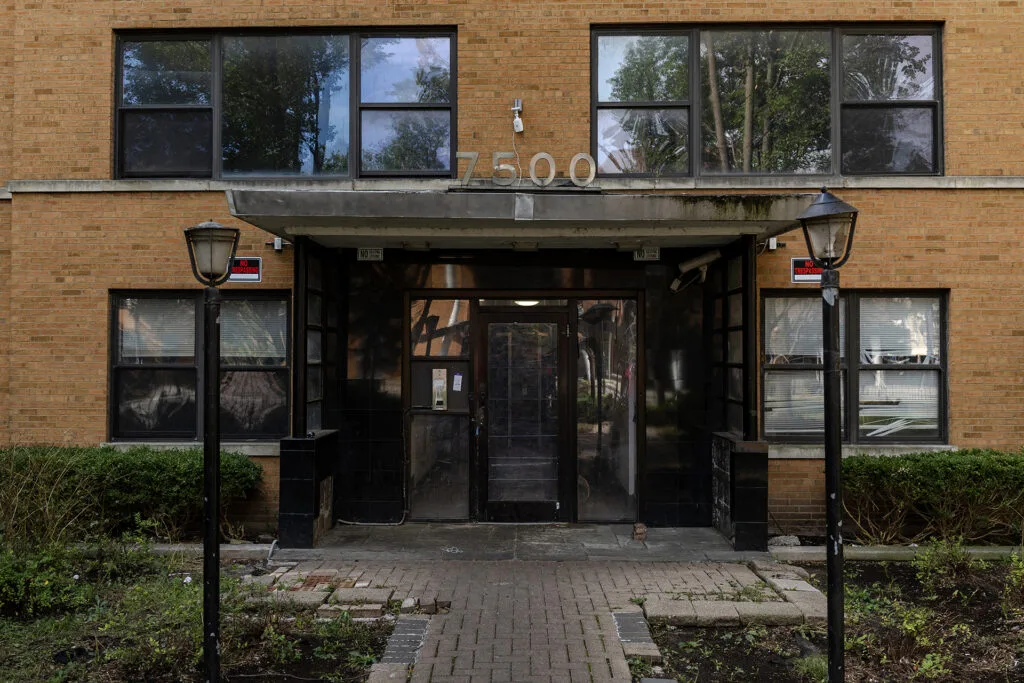
The Raid
At 12:55 a.m. on Sept. 30, Parra was exchanging audio messages with an old friend from Caracas about a construction job. Parra’s 5-month-old daughter had been sick with a fever, and the friend planned to drop by with diapers.
Suddenly Parra’s girlfriend started shouting in the other room. An audio message to the friend recorded the couple’s frantic conversation.
“Immigration got in here,” she told Parra.
“Where?” he asked.
“Here, inside,” she said, as the noise of a helicopter crescendoed.
Before they knew it, masked agents had knocked down the door of their second-floor apartment, according to Parra, his girlfriend and a friend who was spending the night there with her son.
“Hands up,” the agents yelled, grabbing Parra in the kitchen and zip-tying his hands behind his back.
“It was like the military hunting for Pablo,” said Parra, referring to the Colombian drug lord Pablo Escobar.
The overwhelming force of the raid shocked the building’s residents.
A video shared on the Citizen app shows large groups of law enforcement around the building during the time of the raid. (Citizen)
Yelianny Nicoll Primera Herreras, 20, awoke to the booming sound of doors being broken down across the hall. She looked out the window of the apartment her family had moved into just two days earlier and saw drones and armored vehicles. Then her apartment door came down. Agents swarmed in, grabbed her husband and pushed him against a wall.
“I was screaming,” Primera said. “I was so scared.” All she could think about, she said, was whether the agents would take away her three daughters — all under 4 — and deport her without them.
Colmenares said he tried to film the agents when they burst into his unit. They snatched his phone, threw it to the floor and hit him across the head with the butt of a rifle, he said. He dropped to his knees, he said, and raised his hands to his neck. His cousin’s wife, Norelly Eugenia Mejías Cáceres, fainted and agents carried her down the stairs.
When she came to, she was disoriented, barefoot and unable to answer agents’ questions. “Where is my son?” she asked again and again, until they took her to a small bus in a nearby parking lot where he was being held with his father and uncle.
Nathan Howard, a U.S. citizen, was asleep in a fifth-floor apartment when the raid began. He saw the helicopter and the agents storming into the building from a stairwell on the roof. He was temporarily blinded by bright white lights as agents threw a flash-bang inside the apartment.
“It’s 20,000 of them running through my house like we got Saddam Hussein in the closet,” he said.
Howard said that he was zip-tied to his brother, Cameo Polk, and later taken to the adjacent parking lot of a school he had attended as a child. Howard was turned over to Chicago police on an outstanding warrant for failure to appear in court. Of the many U.S. citizens who agents detained temporarily, Howard was the only one arrested. He is pleading not guilty, according to the Cook County public defender’s office.

Agents scrawled the Venezuelans’ apartment numbers on their arms, bare chests and foreheads with black marker. Then they marched the detainees outside, lined them against a wall and questioned them, a scene filmed by a NewsNation camera crew that accompanied agents.
Parra’s girlfriend said she tucked their cellphones under her shirt and between her breasts and walked out of the building. She carried her sick daughter, who was dressed in a onesie. She saw other mothers with half-naked children — some were barefoot, others wore only diapers.
“They didn’t give them a chance to even put clothes on their kids,” she said.
Agents questioned Leonardo José Paredes Varela, Gabriel Enrique Gamarra Pérez and Jonahyker Francisco López Manzano about Tren de Aragua, the three men said. Paredes has convictions for domestic battery and shoplifting, and a pending gun possession charge. He is pleading not guilty in the pending case, according to the Cook County public defender’s office. Gamarra has a conviction for marijuana possession and another pending marijuana possession charge. It is unclear whether he has entered a plea in the pending case. We did not find any convictions for López. All three men denied knowing anything about the gang, and authorities have not publicly accused them of being members.
Paredes, Gamarra and two others said agents showed them photos of about a half dozen men and asked if they knew them.
The photos gave them the impression that the agents were looking for people who didn’t live in the building. Gamarra said one agent said about him and the others, “These aren’t the guys.”
Parra said agents did not ask him about Tren de Aragua.
Because of the lack of information provided by DHS, it is difficult to assess the accusations that Parra and another Venezuelan, who has not been named, belong to Tren de Aragua. A DHS spokesperson said one of the two men “was a positive match” on a watch list for terrorists. We checked several lists of alleged gang members that are kept by Venezuelan law enforcement officials and the international law enforcement agency Interpol; Parra’s name was not on those lists.
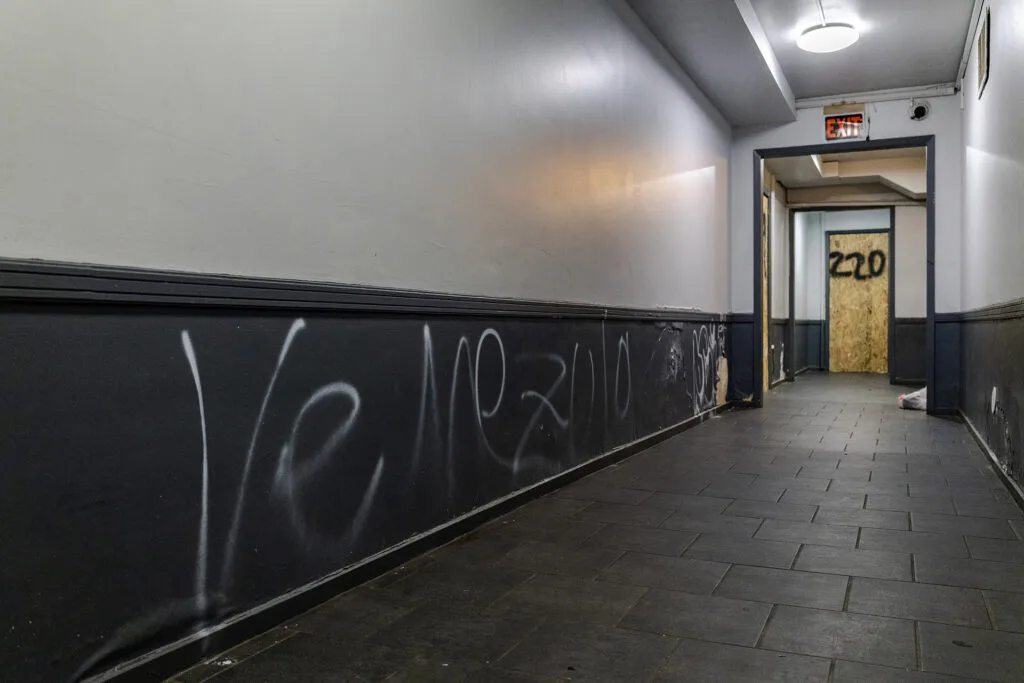
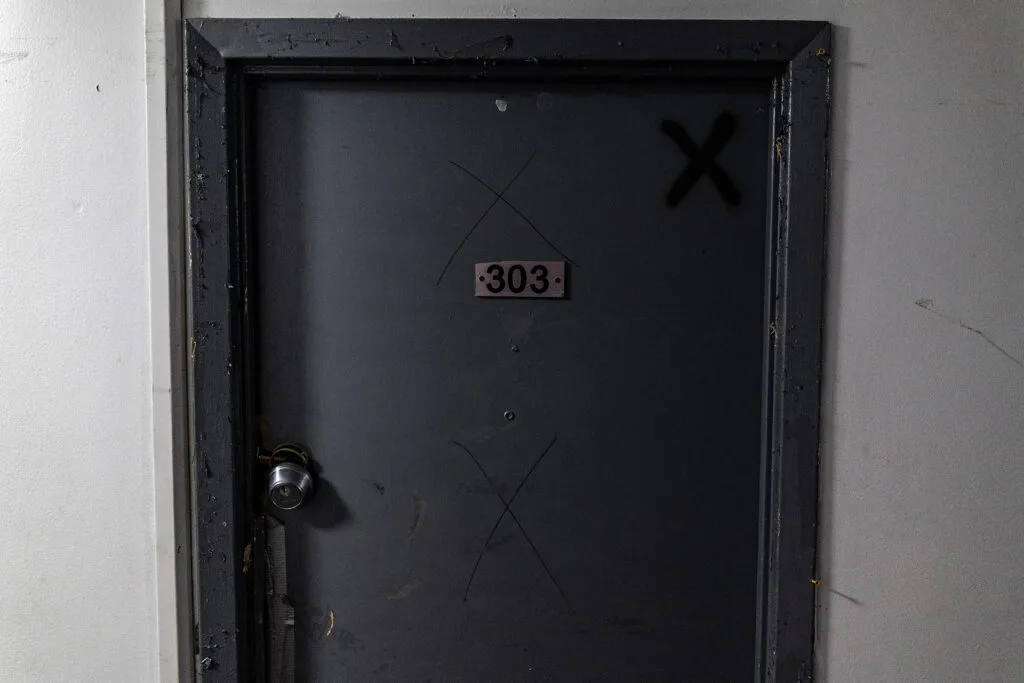
Gang experts warn about the challenges of correctly identifying members of Tren de Aragua. The gang has a short history in this country and has less power here than in Latin American countries such as Chile and Peru, where Tren de Aragua and its offshoots are major players in the underworld.
ProPublica, in collaboration with Venezuelan journalists from Alianza Rebelde Investiga (Rebel Alliance Investigates) and Cazadores de Fake News (Fake News Hunters), previously reported on how the Trump administration rounded up more than 230 Venezuelans and called them gang members without providing evidence. The men were sent to El Salvador, where they were imprisoned for four months. DHS and the White House have previously defended the deportations, saying that “America is safer with them out of our country.”
Edwin Santana, a longtime New Jersey gang investigator, said federal agents are struggling with political pressure and lack of expertise as they try to identify members of the gang.
“There’s a fixation with Tren de Aragua,” he said. “It’s like the flavor of the month.”
Overkill?
The high-profile raid escalated the political debate over how the Trump administration is carrying out its immigration campaign. In interviews with ProPublica, eight current and former law enforcement officials, including veterans of SWAT teams, expressed concern about some of the methods used in South Shore.
The deployment featured two tactical units that, until recently, would have been a strange sight on the streets of U.S. cities. One is a special response team of Customs and Border Protection officers who normally work at ports of entry. The other is the Border Patrol Tactical Unit, the agency’s elite SWAT division. Although the unit does occasional inland missions, current and former law enforcement officials said it rarely conducts urban raids like the one in Chicago.
“BORTAC is highly trained and proficient, but it’s not clear that this type of operation is one they are best suited to conduct,” said John Cohen, a former senior DHS official.
Cohen, a 40-year law enforcement veteran and former SWAT team member, questioned the decision to have agents descend from helicopters on ropes. Helicopters are routinely used for observation and support during raids. But in cities, the tactics known as rappelling, in which agents are attached to the ropes, and fast-roping, in which they are not attached, are typically reserved for extreme scenarios such as hostage rescues because of the risks of injury to agents and of a helicopter mishap to the public, experts said.
Cohen said he has done hundreds of searches, including in gang-controlled buildings, but “I have never rappelled out of helicopters in those operations.”
DHS officials have not explained the nature of the threat motivating extraordinary tactics that generally require high-level approval in Washington, D.C., according to interviews.
It’s also not clear how authorities chose the target for the raid. The building has a troubled history that has drawn the attention of police and city inspectors for years. Last year the city sued the owner, Trinity Flood, a Wisconsin real estate investor, for failing to keep the building safe. The property is in foreclosure. In court filings, Flood has said her companies “have invested hundreds of hours working with law enforcement in an attempt to prevent illegal squatters and criminal elements in the area from entering the building.” Flood did not return requests for comment.
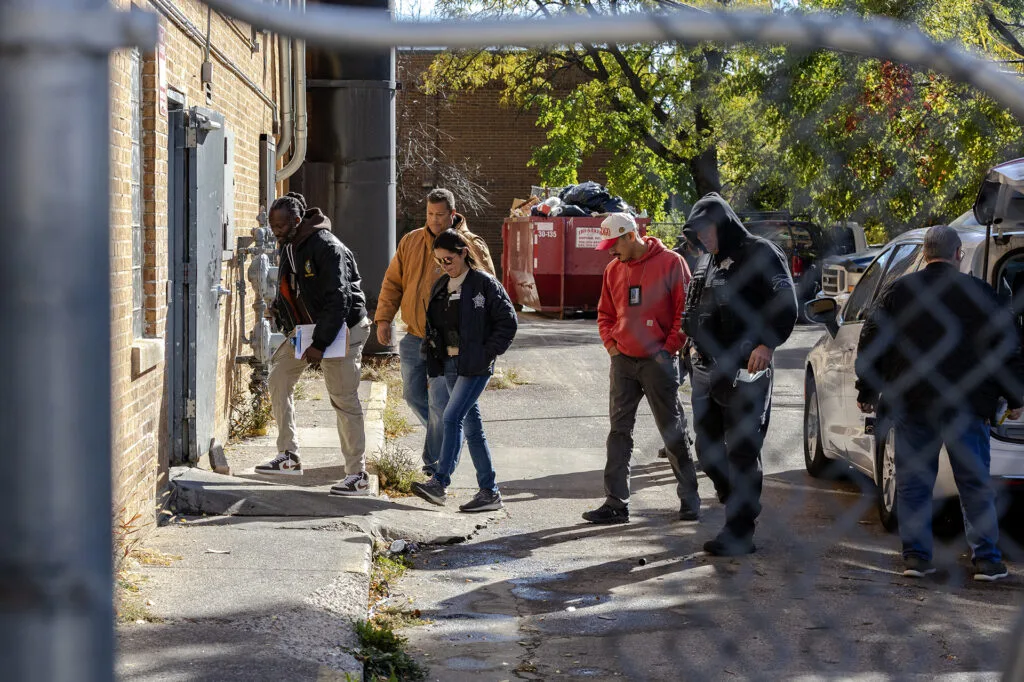
The area’s alderman, Greg Mitchell, has said that he responded to the many complaints about the building by seeking help from police and other agencies, including the federal Bureau of Alcohol, Tobacco, Firearms and Explosives, according to a Block Club Chicago report. Mitchell did not respond to requests for comment. A spokesperson for the ATF, whose agents participated in the raid, declined to comment.
Two weeks before the raid, Cook County sheriff’s deputies went through the building to carry out evictions in a dozen apartments, records show. Federal agents developed a target list of suspects and apartments based partly on information from Flood, according to interviews and statements by officials.
The agents focused mainly on apartments occupied by immigrants, or by U.S. citizens who weren’t paying rent, and bypassed a number of units whose tenants were older U.S. citizens, according to interviews.
Close to two dozen residents said agents entered their apartments without providing a warrant. Many said agents had knocked down their doors. Such a forced entry would require a judicial warrant signed by a federal judge. No such warrants have been filed publicly, though they can be kept under seal as the investigative process unfolds.
Colmenares said he didn’t open the door to his apartment because he had seen on the news that agents were supposed to have warrants. Naudelys Yayes said that, as she and her 4-year-old son were taken out of another unit, she asked an agent if they were allowed to enter without a warrant. He told her they had a warrant because “in this building there’s a lot of weapons,” but he never showed it to her.
Immigration authorities can also use so-called administrative warrants, which do not allow a forced entry. Residents must give permission for officers to enter their apartment.
DHS officials have said warrants played a role in the raid but have not provided details.
“We’re not violating their rights,” Greg Bovino, the Border Patrol chief who led the raid, said in an interview with NewsNation. “We’re making it safe for them so they can live in a safe and secure neighborhood.”
If that was the goal, it hasn’t happened. At a Friday hearing, the day after a court-ordered inspection, five city inspectors described exposed wires, broken elevators, leaking pipes and other hazards. Six tenants told the judge about mice and gnats, flooded floors, broken doors, squatters and a lack of security guards.
The building’s property manager, Corey Oliver, said he hired armed security after the raid but fired them when they refused to patrol the building. Oliver did not respond to requests for comment.
“The safety of these tenants and the safety of this building is of paramount importance,” the judge said during the hearing. She appointed a new company to oversee the property and help the remaining three dozen tenants move elsewhere.
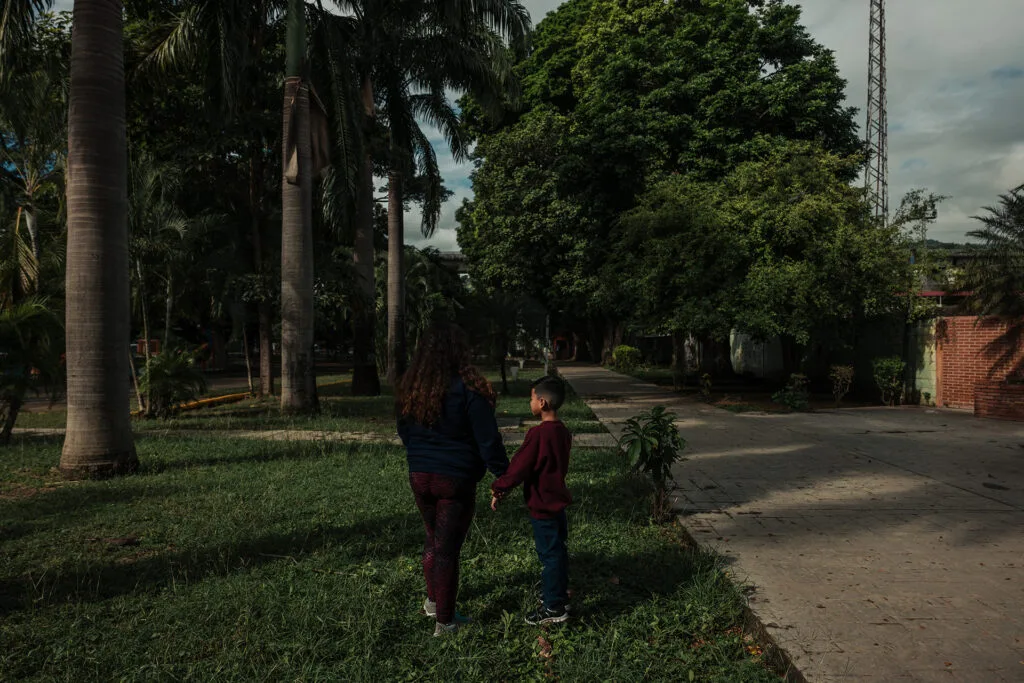
Leaving
After the raid, at least 17 Venezuelan men were bussed to the Clay County Jail near Terre Haute, Indiana. Colmenares said he wasn’t allowed to use the bathroom all morning and urinated on himself during the three-and-a-half hour drive to the jail.
The Venezuelan women and children detained at the building were taken to an immigration processing center. At least four of the mothers and their children — some U.S. citizens — were released later that day.
Parra’s girlfriend said she was put on an ankle monitor and told to get her daughter’s U.S. passport so they could be returned together to Venezuela. She went back to her apartment and was infuriated to discover that it had been ransacked by other tenants who could walk in because the door had been knocked down.
“I was left without clothes. Without a bed. Without my daughter’s crib,” she said. “And they took my partner away from me.”
About two weeks later, she returned to Venezuela with her daughter.
Other women and children were put on a plane to Texas the day after the raid. Mejías and her 6-year-old son spent close to a month at a family detention facility there before she gave up fighting for asylum and asked to be deported. Her son cried for his father and refused to eat the beans and rice served in jail. Sometimes other women would buy her son ramen noodles from the commissary.
Back in Venezuela, Mejías and her son are now staying at the home of one of her sisters about an hour from Caracas. Her husband, who had a job washing dishes at a restaurant in Chicago’s Chinatown, remains in detention at a jail in Kentucky.
“They said they were looking for criminals, but the boy and me, and my husband, we’re not criminals,” Mejías said in a phone interview. “I don’t know why they did that.”
In October, one of the Venezuelan men filed a habeas corpus petition in federal court seeking his release on bond. That petition — which was filed jointly with two other men detained at the building before the raid — remains pending.
As the weeks in detention have passed, several men said they feel sick, isolated and in despair. In immigration hearings, many have asked judges to send them to Venezuela as soon as possible.
Three weeks after the raid, Johan José Cordero Hernández appeared in Chicago immigration court via a video link from jail.
Cordero had arrived in the United States in early 2023 and worked as a welder. On the night of the raid, a masked agent marched him through a parking lot; he looked tired in a pink T-shirt, his hands zip-tied behind his back.
In court, Cordero sat alone in front of a camera and answered the judge’s questions politely in Spanish. He didn’t have an attorney. He told the judge he hadn’t been arrested before. A government attorney confirmed that Cordero was telling the truth. “Not in our records,” she said.
The judge then explained that Cordero was eligible to depart voluntarily to Venezuela, giving him the chance to return one day. Cordero accepted.
“I wish you much luck in the future,” the judge said. Cordero bowed his head. Two weeks later, he was gone.
Nick McMillan contributed data analysis. Kirsten Berg and Gabriel Sandoval contributed research. Ronna Rísquez of Alianza Rebelde Investiga and Andrea Morales of MLK50: Justice through Journalism contributed reporting.
Keep Our Journalism Strong. Donate Today.
Your support makes it possible for FRONTLINE to produce bold investigative documentaries on the issues that matter most. Donate today to help sustain this work through the months and years ahead.
Related Documentaries
Latest Documentaries
Related Stories
Related Stories
Explore
Policies
Teacher Center
Funding for FRONTLINE is provided through the support of PBS viewers and by the Corporation for Public Broadcasting, with major support from Ford Foundation. Additional funding is provided the Abrams Foundation, Park Foundation, John D. and Catherine T. MacArthur Foundation, Heising-Simons Foundation, and the FRONTLINE Trust, with major support from Jon and Jo Ann Hagler on behalf of the Jon L. Hagler Foundation, and additional support from Koo and Patricia Yuen. FRONTLINE is a registered trademark of WGBH Educational Foundation. Web Site Copyright ©1995-2025 WGBH Educational Foundation. PBS is a 501(c)(3) not-for-profit organization.

